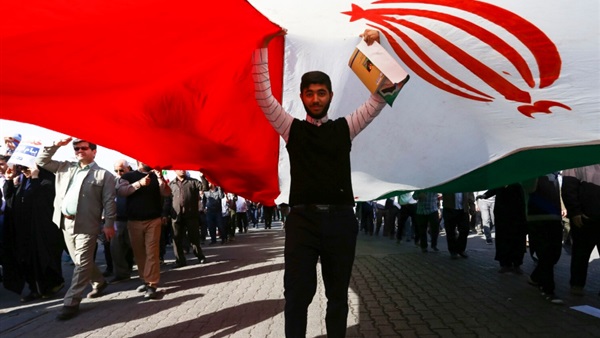EU rises up against Iranian repression of demonstrators

The European Parliament has moved to sever its relations
with the Iranian regime.
This came against the backdrop of popular demonstrations in
Iran over the death of a Kurdish woman at the hands of Iranian morality police
in mid-September.
The European Union imposed, meanwhile, two packages of
sanctions on Iran. This comes amid expectations that the bloc would impose a
third more stringent sanctions regime.
During their meeting in the last week of November, European
Parliament representatives demanded the inclusion of the entire Iranian
Revolutionary Guard in the list of terrorist organizations.
They also demanded the closure of Tehran's embassies in
European Union states.
This came within the framework of support to the protests
raging on in Iran at present.
The European Parliament also discussed the brutal crackdown
on demonstrators in Iran and called on the EU Enlargement Commissioner to
examine the EU's clear response to this crackdown.
While Charlie Weimers, a member of the European Parliament
from Sweden, described Iranian authorities as an 'illegitimate' representative
of the Iranian people.
He called for recalling EU ambassadors from Iran and the
closure of EU embassies in the Islamic Republic.
Hanna Neumann, a representative of the German Greens Party
in the European Parliament, also demanded that the Revolutionary Guard Corpse be
included in the list of terrorist groups in the European Union.
She criticized EU's policies, saying the Revolutionary Guard
Corpse chooses the most beautiful female demonstrators and rapes them so that
others do not dare to protest.
"What else should they do so that they can be included
in the list of terrorist organizations?" Neumann asked of the
Revolutionary Guard Corpse.
Javier Zarzaljos, Spain's representative in the European
Parliament, pointed to the provision of Iranian-made weapons to Russia for use
in Ukraine.
He called on the EU to act more responsibly, saying the
Iranian regime is a great danger that transcends the Middle East region.
"Is it acceptable to have ambassadors of the Islamic
Republic on the territory of the European Union?" Zarzaljos asked.
"We must act more responsibly."







